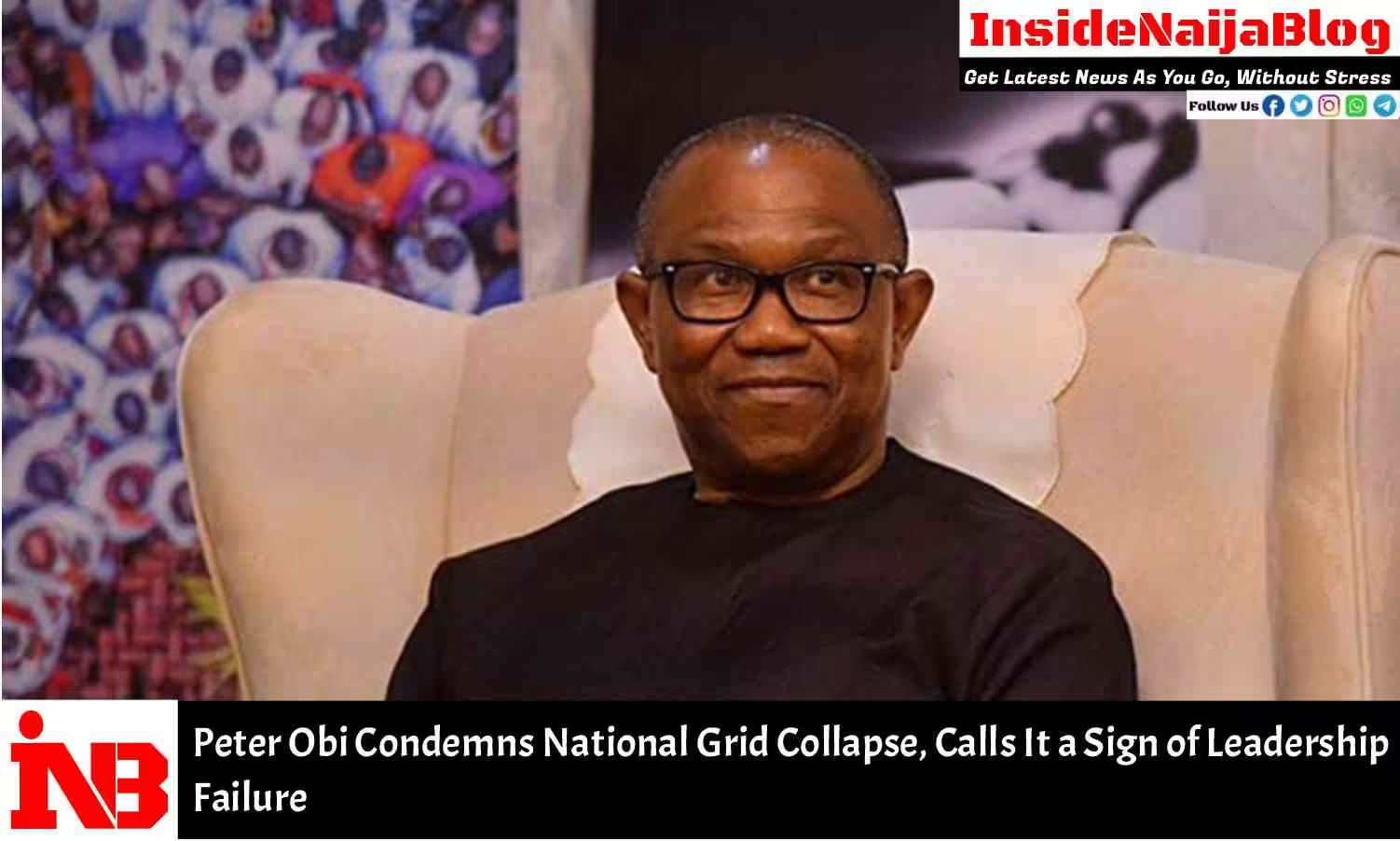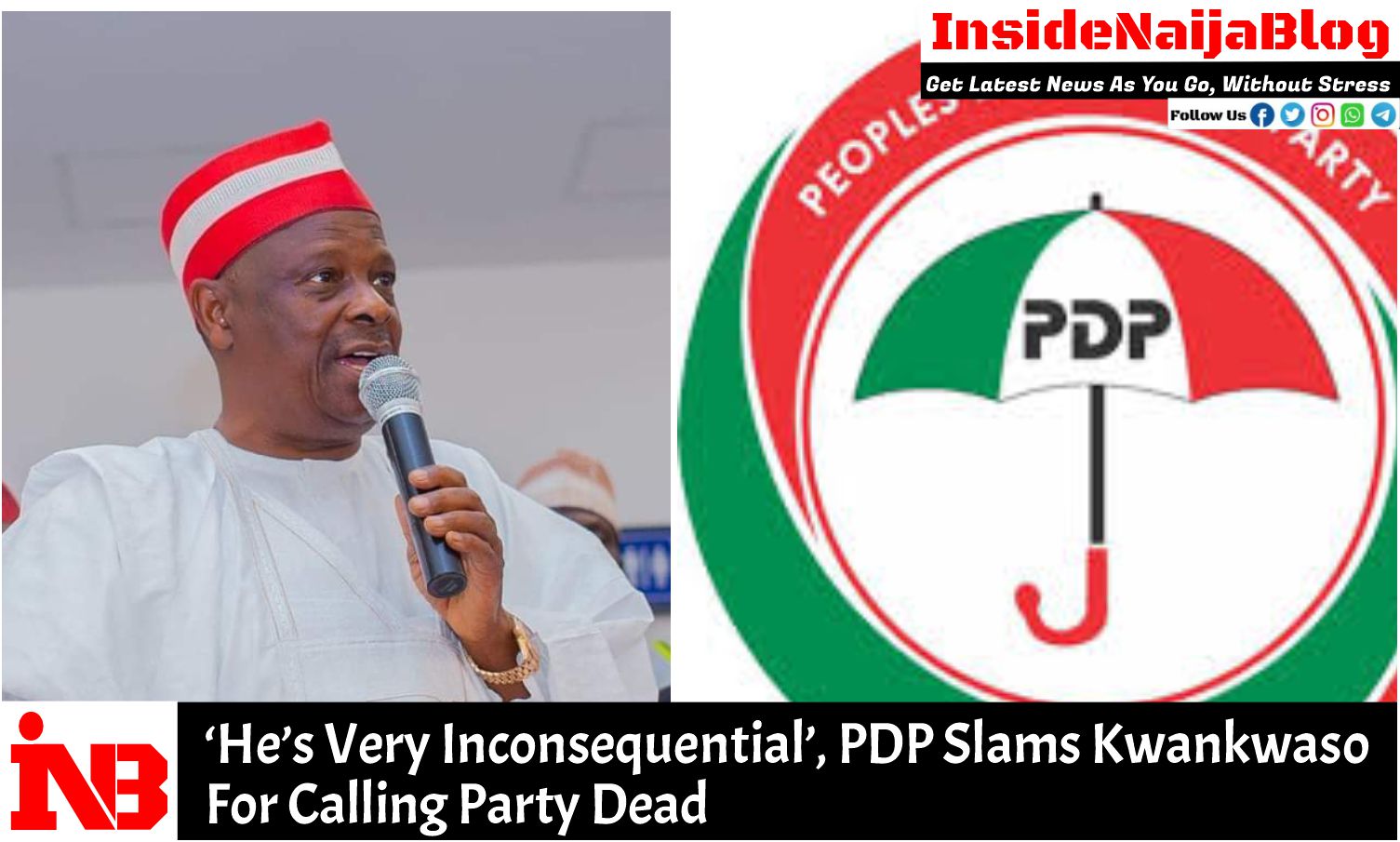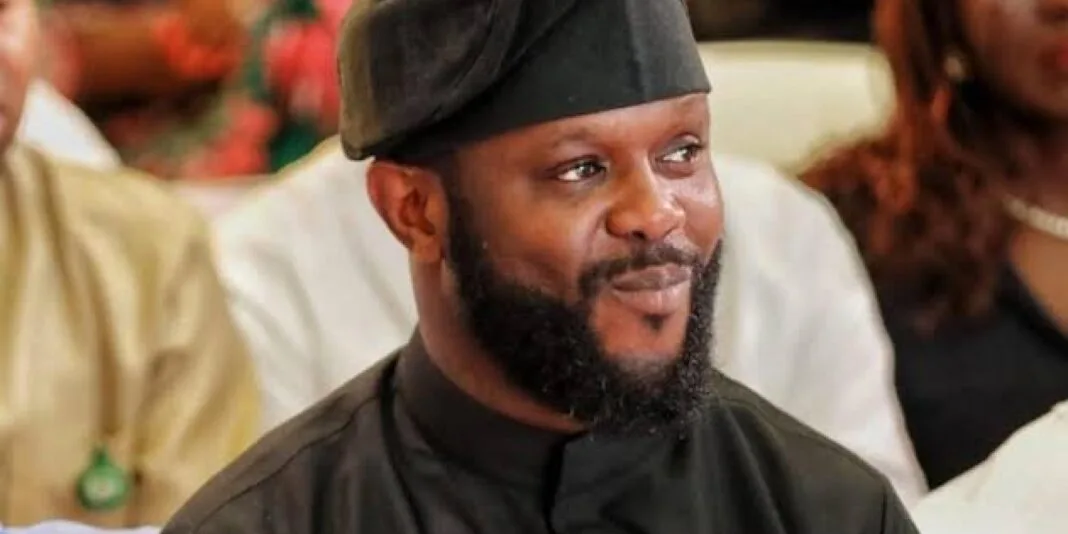Peter Obi, the Labour Party’s 2023 presidential candidate, has voiced strong concerns following yet another collapse of Nigeria’s national power grid. The grid failure, which occurred on Monday evening around 6:18 pm, led to widespread power outages across the country, once again plunging millions into darkness.
According to reports, Nigeria’s electricity generation, which was at 3.87 gigawatts by 5 pm, saw a sharp decline to 3.56 gigawatts by 6 pm, before completely dropping to zero by 7 pm. The collapse continued through the night, disrupting power supplies across several regions. The Enugu Electricity Distribution Company (EEDC) later confirmed the grid collapse in a statement released that same evening.
In response to this incident, Peter Obi took to social media, expressing his frustration and disappointment. In a statement on X (formerly Twitter), Obi described the collapse as a “national embarrassment,” highlighting it as a clear example of poor leadership and ineffective policy implementation at the highest levels of government.
“For the umpteenth time, the national grid has collapsed, plunging a huge part of the nation into darkness and exposing the fragility of Nigeria’s power infrastructure. This recurring disaster is a national shame and a glaring testament to the failure of leadership and policy implementation at the highest levels,” Obi remarked.
Obi emphasized that this latest grid collapse is not just a technical failure but a reflection of deeper systemic issues within Nigeria’s leadership. He pointed out that the repeated breakdowns of the national power grid are major obstacles to the nation’s economic growth and development.
“How long must Nigerians endure a system that fails to provide one of the critical necessities for our daily lives?” he asked. He stressed that stable power is essential for economic progress, noting that the lack of reliable electricity supply undermines the productivity and potential of small and medium-sized enterprises (SMEs), which are critical to Nigeria’s economic engine.
Obi also highlighted the significant disparity between Nigeria’s power generation capacity and that of other African nations such as South Africa, Egypt, and Algeria. While Nigeria remains the most populous country in Africa, it generates far less electricity compared to these smaller economies. This disparity, according to Obi, reflects a deep governance deficit that has stifled Nigeria’s growth.
“Today, we are the fourth-largest economy in Africa, having fallen from the number one position due to leadership failure over the years, including the persistent power crisis. The disparity in power generation is a reflection of the deep-rooted governance deficit that continues to hold back our growth and potential,” Obi noted.
He also criticized the lack of political will to address the country’s ongoing energy crisis, pointing out that Nigeria’s repeated failures to reform its power sector are holding the country back from realizing its full economic potential. He stressed that electricity is fundamental to the growth of small businesses, which play a key role in job creation and contribute significantly to the nation’s GDP.
In his final remarks, Peter Obi called for urgent and comprehensive reforms in Nigeria’s power sector. He urged the government to prioritize policies and initiatives that would bring about measurable development and improve the lives of its citizens. “Nigerians deserve a government that prioritizes measurable indices of development,” Obi stated, stressing the need for leadership that focuses on the real issues affecting the nation’s progress.
As Nigeria continues to grapple with recurring power grid collapses, Obi’s call for reform reflects the frustrations of many Nigerians who rely on stable electricity to power their homes, businesses, and industries. The persistent power outages have had widespread consequences, from disrupting daily life to stalling economic activities, and the need for urgent solutions has never been more critical.




